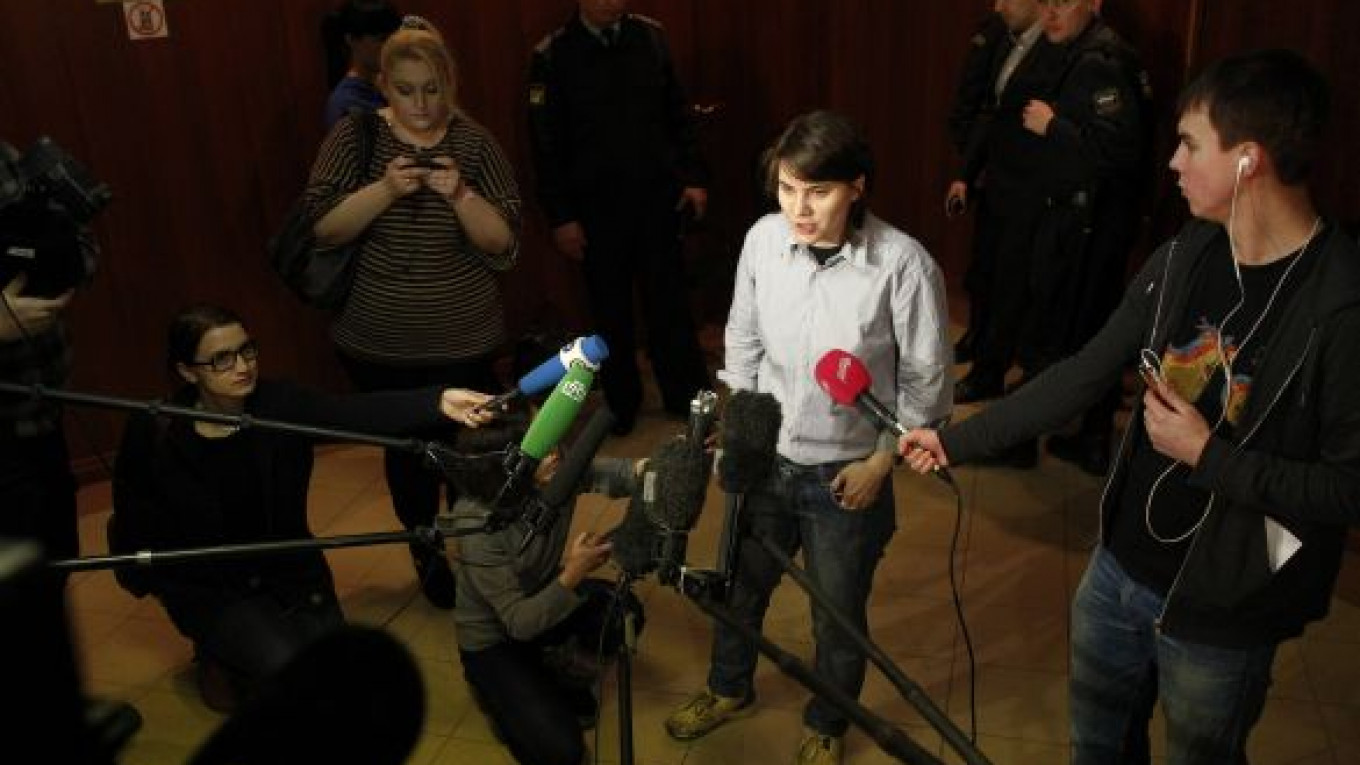Footage of feminist rockers Pussy Riot's irreverent protest against President Vladimir Putin in Moscow's main cathedral last year has been banned in Russia and must be removed from the country's Internet.
The Moscow City Court on Wednesday rejected band member Yekaterina Samutsevich's appeal of a lower court's ruling in November, meaning that its ban of the video now takes effect.
Samutsevich said the decision amounted to censorship and vowed to fight on.
Pussy Riot shot to global fame last year after three band members, including Samutsevich, were convicted in August on charges of "hooliganism motivated by religious hatred" for their "punk prayer" against Putin's return to the presidency in March's election and the outspoken support for his bid by the patriarch of the Russian Orthodox Church. They were sentenced to two years in prison, but Samutsevich was later released on appeal.
The trial was widely seen as a political vendetta and attracted international attention to Russia's intolerance of dissent.
Internet providers face fines up to $3,000 if they fail to block the footage. The decision, taken on the request of a conservative lawmaker who said the videos offended religious believers, is largely symbolic, since Russians will be able to access the video on foreign servers not subject to the law.
Pussy Riot's videos were banned under Russia's vaguely defined "extremism" law, which is supposed to restrict neo-Nazi and terrorist groups but has been used to restrict Scientologists and the television cartoon "South Park." Critics accuse the Kremlin of exploiting the law to stifle opposition and free speech.
In September, Russian courts banned "The Innocence of Muslims," a low-budget film produced in the U.S. that mocks Muslims and the prophet Muhammad.
Related articles:
A Message from The Moscow Times:
Dear readers,
We are facing unprecedented challenges. Russia's Prosecutor General's Office has designated The Moscow Times as an "undesirable" organization, criminalizing our work and putting our staff at risk of prosecution. This follows our earlier unjust labeling as a "foreign agent."
These actions are direct attempts to silence independent journalism in Russia. The authorities claim our work "discredits the decisions of the Russian leadership." We see things differently: we strive to provide accurate, unbiased reporting on Russia.
We, the journalists of The Moscow Times, refuse to be silenced. But to continue our work, we need your help.
Your support, no matter how small, makes a world of difference. If you can, please support us monthly starting from just $2. It's quick to set up, and every contribution makes a significant impact.
By supporting The Moscow Times, you're defending open, independent journalism in the face of repression. Thank you for standing with us.
Remind me later.


